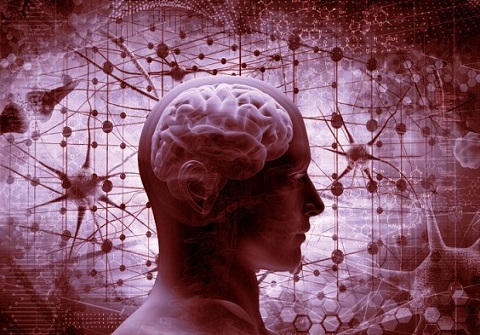University of Connecticut Study Warns That Long COVID is Quietly Damaging the Brain and Mental Health of Thousands
Nikhil Prasad Fact checked by:Thailand Medical News Team May 02, 2025 10 months, 55 minutes ago
Medical News: A new study from the University of Connecticut School of Medicine has revealed alarming insights into how long COVID is silently wreaking havoc on the brain and mental well-being of those who survive the initial infection. Conducted by a research team from UConn Health’s Department of Pulmonary, Critical Care, and Sleep Medicine in Farmington, Connecticut, the study presents one of the most comprehensive looks yet at the lingering cognitive and psychological issues associated with long COVID.
 University of Connecticut Study Warns That Long COVID is Quietly Damaging the Brain
University of Connecticut Study Warns That Long COVID is Quietly Damaging the Brain
and Mental Health of Thousands
The researchers, led by Alexandria N. Plant, Dr. Ameer Z. Rasheed, and Dr. Mira Hasan, reviewed the medical records of 155 patients who visited UConn Health’s Long COVID Clinic between March 2020 and August 2022. All had confirmed SARS-CoV-2 infections and suffered from symptoms lasting more than four weeks. This
Medical News report sheds light on how deeply the virus continues to affect the nervous system even after apparent recovery.
Widespread Neurological and Psychiatric Symptoms
The study found that a staggering 71% of patients reported neurological symptoms after their acute COVID-19 phase. These included brain fog, memory problems, difficulty concentrating, dizziness, headaches, nerve pain, weakness, and even a persistent loss of taste or smell. Women made up nearly two-thirds of the patient group, and the most affected age group ranged from 41 to 60 years.
Shockingly, traditional brain scans like MRIs and CTs showed little to no abnormality in most cases, suggesting that these debilitating symptoms may not yet be detectable through conventional imaging. Only two patients had minor abnormalities on brain scans, which raises concerns about how insidious and invisible the damage from long COVID might be.
Equally disturbing, 78% of the patients also reported psychological symptoms such as anxiety, depression, sleep problems, and crushing fatigue. Fatigue was the most common complaint, affecting nearly 64% of participants. Women again were disproportionately affected, with 88% reporting some form of mental health issue compared to 58% of men.
Limited Diagnostic Tools but Promising Treatments
Doctors used a combination of psychiatric screening tools, neurological evaluations, and physical exams to better understand each patient’s condition.
Despite limited diagnostic clarity, treatments were customized. Some patients saw improvements with medications like amantadine or modafinil, nutritional supplements such as magnesium and coenzyme Q10, or therapies like CPAP for sleep issues. In more severe cases, steroid infusions and antidepressants were employed. Mental health referrals were also made for about one in ten patients.
Interestingly, during evaluations, several patients were newly diagnosed with other health conditions, including diabetes, thyroid disorders, adrenal issues, and autoimmu
ne responses—conditions that may have been triggered or worsened by the SARS-CoV-2 infection.
The Underlying Mechanisms and the Need for Urgency
Scientists believe the root of long COVID’s neurological and psychiatric toll may lie in immune system disruption caused by the virus. Long COVID appears to trigger widespread inflammation, breakdowns in the blood–brain barrier, and possibly even viral persistence in brain cells, leading to oxidative stress and microvascular dysfunction. Researchers also theorize that long COVID could act similarly to viral-induced autoimmune diseases or tauopathies, where immune responses begin to target brain tissue.
Despite the mounting evidence of long COVID’s seriousness, the study highlights a worrying gap in diagnostic tools and understanding. Patients often go unseen, unheard, and untreated because their symptoms are real yet invisible to conventional medical scans.
Conclusion
This new research underlines the urgent need for more targeted diagnostics and treatments for long COVID patients experiencing cognitive and psychological distress. Long COVID is not merely a temporary post-viral condition but a persistent syndrome capable of deeply altering brain function and emotional health. The fact that these effects are being reported up to two years after initial infection demonstrates how relentless and chronic the syndrome can be. It also emphasizes the necessity of increased public health support and long-term medical care frameworks for those affected. Until a clearer biological understanding emerges, these findings stress the importance of validating patient experiences, advancing neuroimaging technology, and prioritizing mental health support in long COVID care strategies.
The study findings were published in the peer reviewed journal: COVID.
https://www.mdpi.com/2673-8112/5/5/65
For the latest on Long COVID, keep on logging to Thailand
Medical News.
Read Also:
https://www.thailandmedical.news/news/american-study-finds-that-covid-19-accelerates-alzheimer-risk-through-brain-barrier-damage-and-chronic-inflammation
https://www.thailandmedical.news/news/neuroinflammation-in-the-brainstem-and-its-link-to-pots-and-long-covid
https://www.thailandmedical.news/news/mysterious-wave-of-sudden-mental-disorders-in-children-linked-to-covid-19-infections-alarms-doctors
https://www.thailandmedical.news/articles/coronavirus
https://www.thailandmedical.news/articles/long-covid
https://www.thailandmedical.news/pages/thailand_doctors_listings
